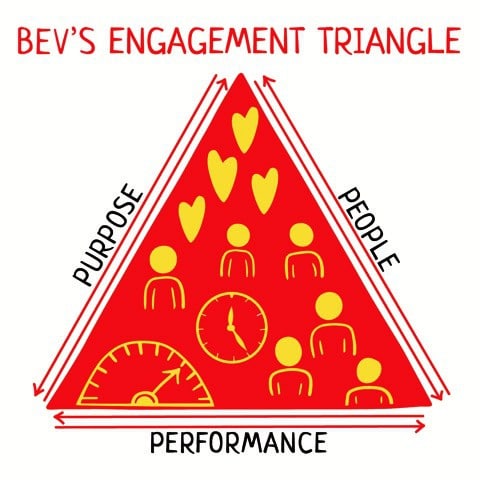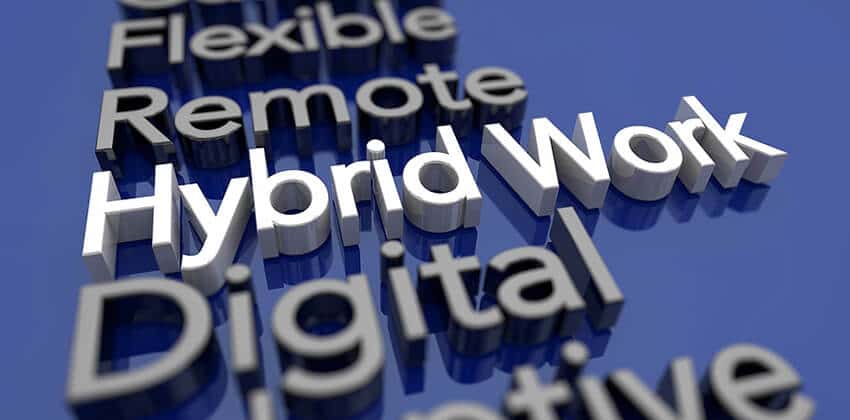
Are you feeling exhausted, frustrated, or discouraged about your career? Or maybe things are OK, but somehow feeling just OK isn’t enough to motivate you to do your best work?
It’s important to feel enthusiastic and energized about your current job and your long-term career. Research shows that when you feel happy and energized about your work you are more likely to be productive, creative, and successful. And beyond success on the job, a satisfying work-life has a huge impact on your well-being—improving your attitude, your energy level, and even your health.
Many people—even those who love their remote jobs—find it’s not easy to stay fully engaged when they are by themselves. Maybe they feel isolated, or bored, or they miss the energy that comes from hanging out with the rest of the team.
If you’re not feeling motivated about today’s tasks or your long-term career path, there are countless little things you can do to generate more enthusiasm. But where to begin, or how to keep going?
Whether I’m working with clients or trying to generate more oomph in my own work life, I often refer to an easy little tool I call “The Engagement Triangle.”

As I wrote in my new book, Find Your Happy at Work, you’re more likely to engage and feel happier when you’re aware of three things: your sense of purpose, the people associated with your work, and the best ways to approach your tasks.
The three points of the Triangle—purpose, people, and performance—are keys to your happiness and success on the job. My executive coaching clients often like to “do the Triangle” by asking themselves questions related to each of these three keys.
Engagement Triangle Basics
Purpose
It’s easier to love your job when you’re working for something bigger than just your paycheck.
- Your reason for pursuing this career path is about more than money. Chances are you take pride in your work because of its impact on other people. And your personal career mission may encompass the values that guide your broader life, like kindness and integrity.
- Your work has greater meaning when you understand and support the vision and standards of your organization, your immediate team, or other professional colleagues.
- Although you may not actually know your customers, your pride in providing others with an excellent product or service can make every day feel worthwhile.
- Even a tedious job can feel rewarding if you have a good reason for working so hard, like supporting your family or preparing for the future.
People
Your job can feel more satisfying because of your colleagues, customers, and other people you encounter through work.
- Human beings evolved to need community and enjoy collective activity. When you feel connected with others, your outlook on life is more positive.
- Having friends at work can make you happier and more effective in interacting with everyone. Creating friendships when you work remotely requires you to be proactive. It means you often have to be the one to reach out and focus on your colleagues’ concerns and interests.
- Studies say teams accomplish more when coworkers show each other respect, gratitude, trust, and integrity. You can model these values by showing concern for your teammates.
- If you’re working far away from your colleagues, find other ways to spend time with people. For me, that can mean walking dogs with a friend and, at the same time, chatting about our career challenges.
Performance
You’re more likely to love your job if you invest effort in your tasks, build expertise and interest in your work, and exercise some autonomy.
- Time passes quickly when you have challenging tasks and opportunities to create something. Look for ways to use your strengths, move toward your goals, and innovate as you pursue your projects.
- When work feels dull, you can stimulate fresh energy by learning something new. The sense of achievement that comes from acquiring a different skill or deeper knowledge can spark an upward spiral.
- Workers who decide how to get a job done are happier and more productive than those who always wait for directions. If you’re feeling over-managed, focus on the decisions that you can control, and make repetitive tasks more interesting by finding ways to improve the process.
- You can find considerable satisfaction by consistently doing your job well and meeting your obligations. You’ll enjoy it even more if you keep finding ways to improve your work.
Use the Triangle to Generate Energy and Enthusiasm
Try motivating yourself by considering questions related to each of the three points. A starting point might be to begin every workday by quickly writing answers to these questions:
- Purpose: What core value will I keep in mind during my work today?
- People: To whom will I reach out in the course of the day?
- Performance: What project might bring me an opportunity to learn something new?

Beverly E. Jones works with leaders to spark new engagement and productivity in their teams, and she helps coaching clients to grow and thrive in their careers. Her work as an executive coach often focuses on enhancing performance, managing time and energy, improving communication, or navigating transitions. Bev’s new book, Find Your Happy at Work, is a roadmap to helping you find more joy, meaning, and success at work at the same time you motivate your team. Her book on building career resilience, Think Like an Entrepreneur, Act Like a CEO, is available around the world, from Africa to India and Europe, and in languages including Simple Chinese, Arabic, and Vietnamese. Visit her website, Clearways Consulting, or connect with Beverly on LinkedIn, Twitter, Instagram, or Facebook.
Don't forget to share this article with friends!




